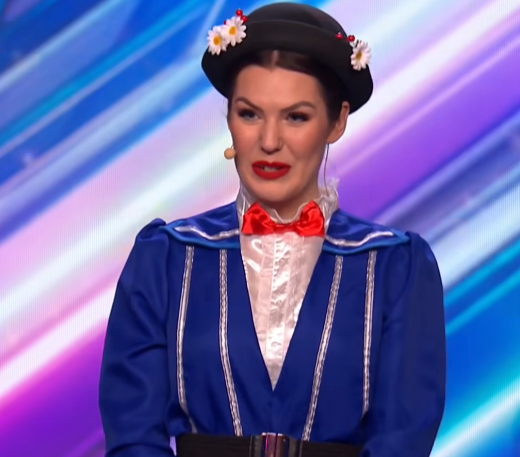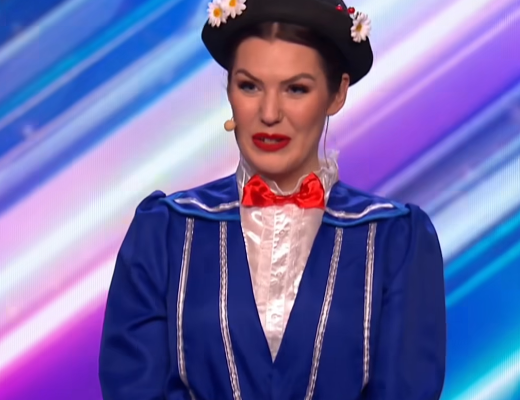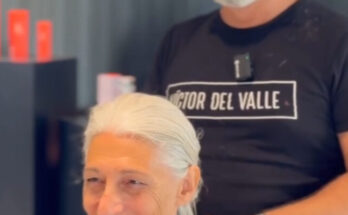She stepped out in blue,
With daisies in her hat,
And a red bow that whispered,
“This won’t be flat.”

Before she sang a single note, the judges raised their brows.
The crowd chuckled softly, unsure whether to expect brilliance or buffoonery.
Was this a costume? A gimmick?
Or was there something more?
Then she opened her mouth.
And the room became a theater of dreams.
Notes fluttered from her lips like birds from an open cage. The whimsical tones of Mary Poppins filled the air—not imitated, but embodied. She didn’t just perform the character. She became her.
With every line, every perfectly-pronounced “supercalifragilisticexpialidocious,” the judges’ expressions softened. Their grins grew wider. Children in the crowd sat taller. Adults suddenly looked younger, as though time had curled back for a moment—just long enough to remember wonder.
Because she wasn’t just mimicking magic.
She was reviving it.
Her voice was crisp as a London morning, and her gestures carried the charm of a dancing chimney sweep. She tapped into nostalgia not with cliché, but with care—like she had held each memory in her palm, dusted it off, and returned it wrapped in harmony.
One could imagine her arriving at this stage the way Mary Poppins arrived on Cherry Tree Lane—on a breeze, guided by stars, answering the quiet wish of a world needing joy.
By the middle of her performance, the room was floating.
Not physically, but emotionally.
She had lifted them.
Even Simon, the master of cynicism, cracked a rare smile—genuine, not forced. Amanda leaned in with a sparkle in her eyes. And children in the audience mouthed lyrics along, not because they knew them from the show, but because she made them want to know.
And when she finished—poised, proud, and entirely in character—the silence before the applause was golden.
It was the kind of silence that means everyone was somewhere else for a moment. Somewhere magical.
Then the applause came.
Loud. Full. Instant.
A standing ovation not out of politeness—but out of joy.
Because for three minutes and thirty-four seconds, she gave them more than a performance.
She gave them London rooftops, carousel rides, and flying umbrellas.
She gave them the power of make-believe.
The permission to feel young.
And the reminder that even in the busiest, noisiest corners of adulthood—there is room for delight.
She curtsied like a proper nanny, then smiled just enough for you to wonder:
Was this just a woman in costume?
Or had Mary Poppins truly paid a visit?
One thing was certain:
Sometimes, it’s not fire or fury that makes a performance unforgettable.
Sometimes, it’s the quiet, colorful charm of a character who reminds us that anything is possible—with a little bit of imagination and a lot of heart.



